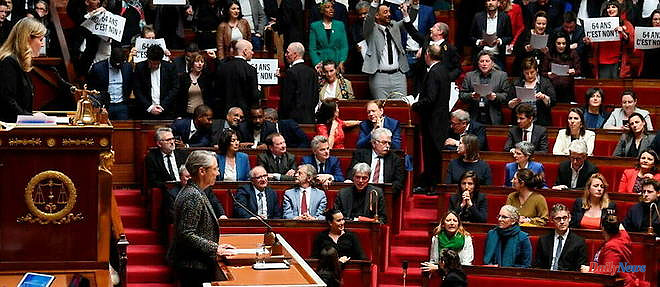Article 49.3, a constitutional weapon unsheathed Thursday for the 100th time under the Fifth Republic by Elisabeth Borne, is often decried as a "denial of democracy", because it allows the government to pass in force when the majority is not guaranteed. "The Prime Minister may, after deliberation by the Council of Ministers, engage the responsibility of the government before the National Assembly on the vote of a text", stipulates the Constitution in article 49, paragraph 3, which thus allows the adoption of a bill without the approval of members.
"49.3 is unpopular because it puts pressure on deputies and undermines the principle of sincerity in parliamentary debate," constitutionalist Dominique Rousseau told Agence France-Presse. A bad reputation acquired over the legislatures, but which did not prevent the successive governments of the Fifth Republic from finding their interest in a provision which saved many majorities.
Nothing "shameful," said MoDem boss François Bayrou, an allied party of the majority. His appeal could, however, harden the social movement against the reform, as several union leaders have warned, and tense public opinion that is mostly hostile to the government's project. The reform will thus be adopted without a vote unless a motion of censure is tabled within 24 hours and then voted by the National Assembly.
It is not uncommon for those who denounce 49.3 when they are in opposition to change their minds when they get to business. "A denial of democracy", had carried away the deputy François Hollande in 2006 to denounce its use by the Prime Minister Dominique de Villepin. About ten years later, under his five-year term, his Prime Minister Manuel Valls used it six times.
With eleven 49.3s since her arrival at Matignon last spring, Elisabeth Borne consolidates her second place in the ranking of heads of government who have used it the most, far behind the champion Michel Rocard (28), who also only had a relative majority between 1988 and 1991. In total, 16 Prime Ministers have used it since 1958. Without any consequences for them. All of them survived the no-confidence motions tabled by the opposition.
Michel Rocard had however experienced some scares on November 16, 1991 with 284 deputies who voted for the motion out of the 289 required. In the current configuration of the National Assembly, all the oppositions would have to support it, not only the left and the National Rally, but also some of the right-wing deputies.












